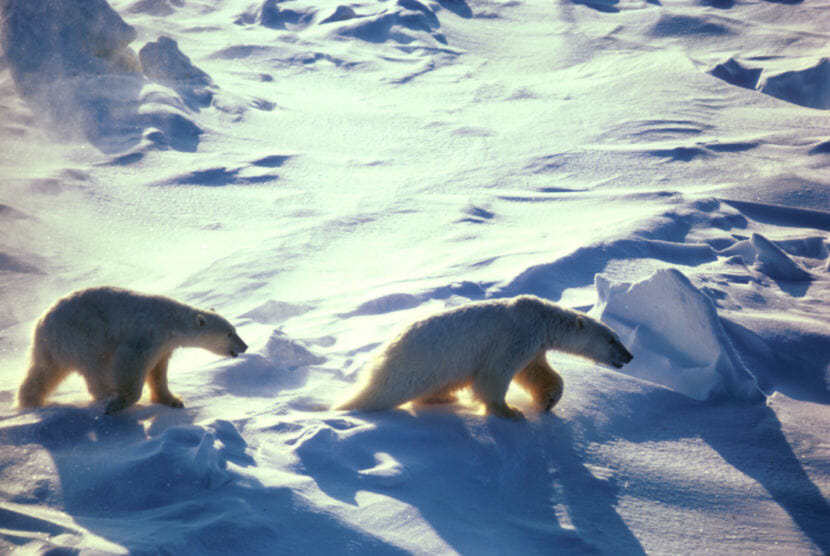
The very first tally of the Chukchi Sea polar bears has just been published, and here’s the big takeaway: Despite a decline in their sea ice habitat, for now the bears are doing well.
In a study published last week, researchers found that the Chukchi bears are healthy, and they estimate there are about 3,000 of them — which is relatively abundant.
That’s despite the fact that the bears’ window to hunt on the ice has been reduced by about a month over the last few decades.
Eric Regehr is a polar bear researcher at the University of Washington and led the study, which collected data on bears between 2008 and 2016.
His team thinks a possible explanation for the population’s health is that the Chukchi Sea is especially rich in the bears’ food source: ringed and bearded seals.
“Our hypothesis is that even though the bears in the Chukchi Sea have less time on the sea ice, during those months on ice in good hunting habitat that they do have, there are so many seals they’re able to fulfill their annual nutritional requirements,” said Regehr.
That could be a factor in why polar bears in the Chukchi Sea are still thriving, while Alaska’s other population of polar bears on the Beaufort Sea are getting thinner and seeing a population decline.
Regehr said the Beaufort Sea likely has fewer seals than the Chukchi Sea, so the Beaufort bears may not be getting the food they need as sea ice declines.
He stresses that just because the Chukchi bears are doing well now, it doesn’t mean that they will continue to do so.
“Unless the underlying problem of climate change is addressed, the sea ice is expected to continue to diminish,” said Regehr. “And at some point that will likely have a negative effect on the bears in this Chukchi area.”
Variability in the Arctic means that, in the short term, there may be differences in the health of the 19 groups of polar bears worldwide. But in the long-term, continued ice loss will likely cause negative effects for polar bears across the board.
